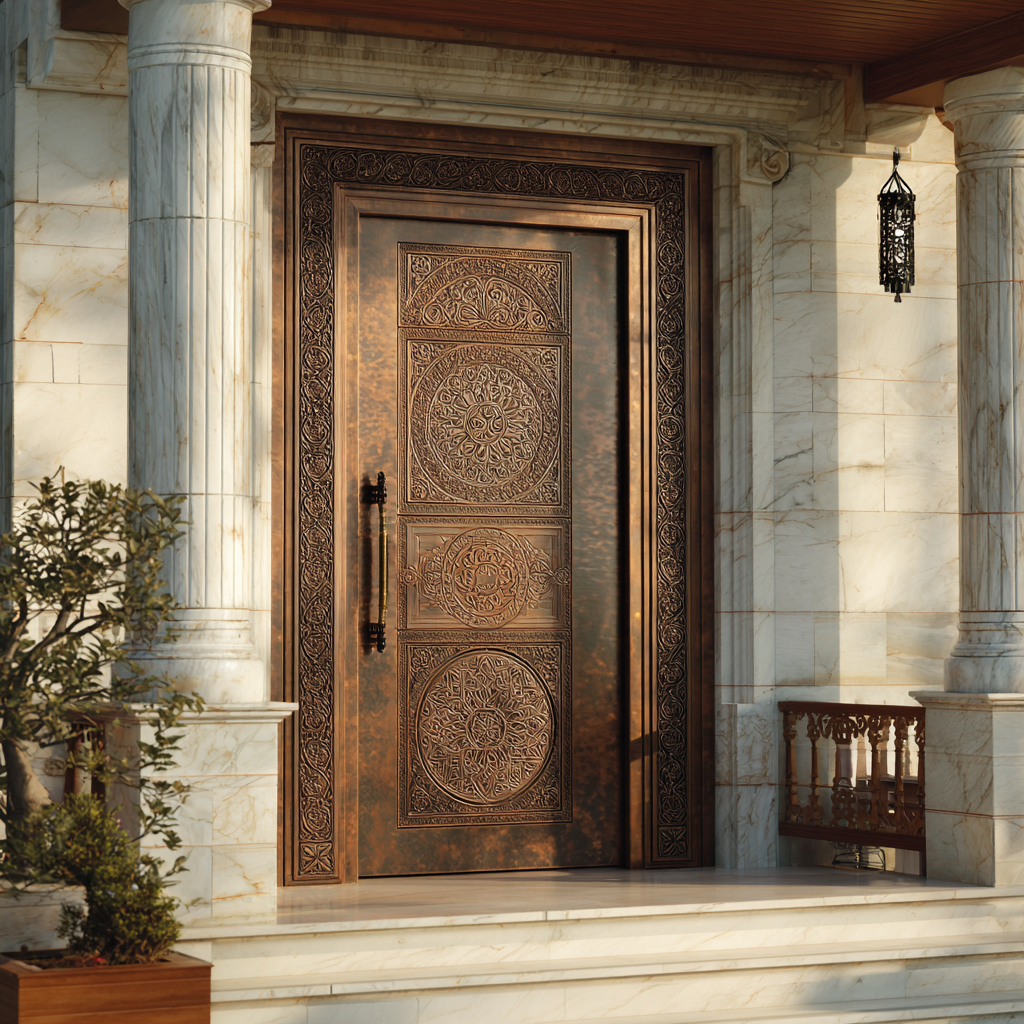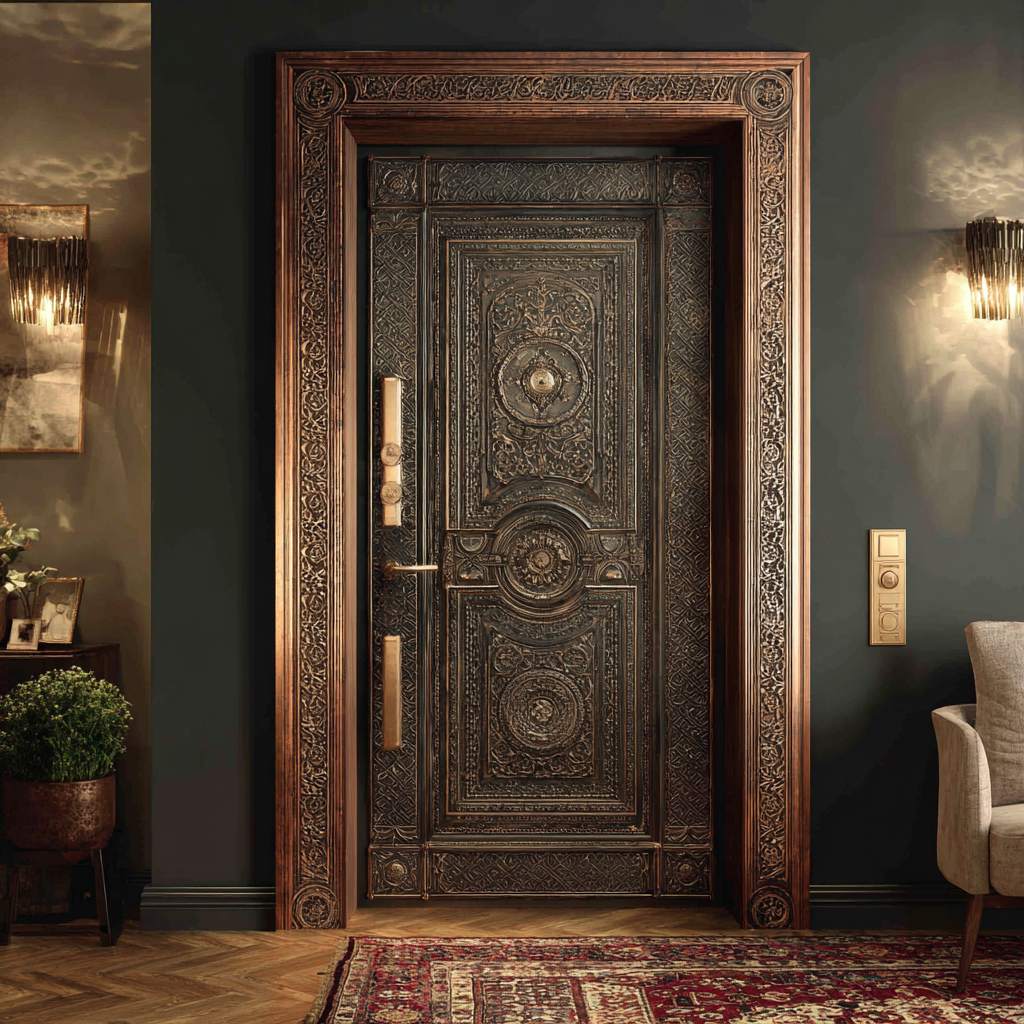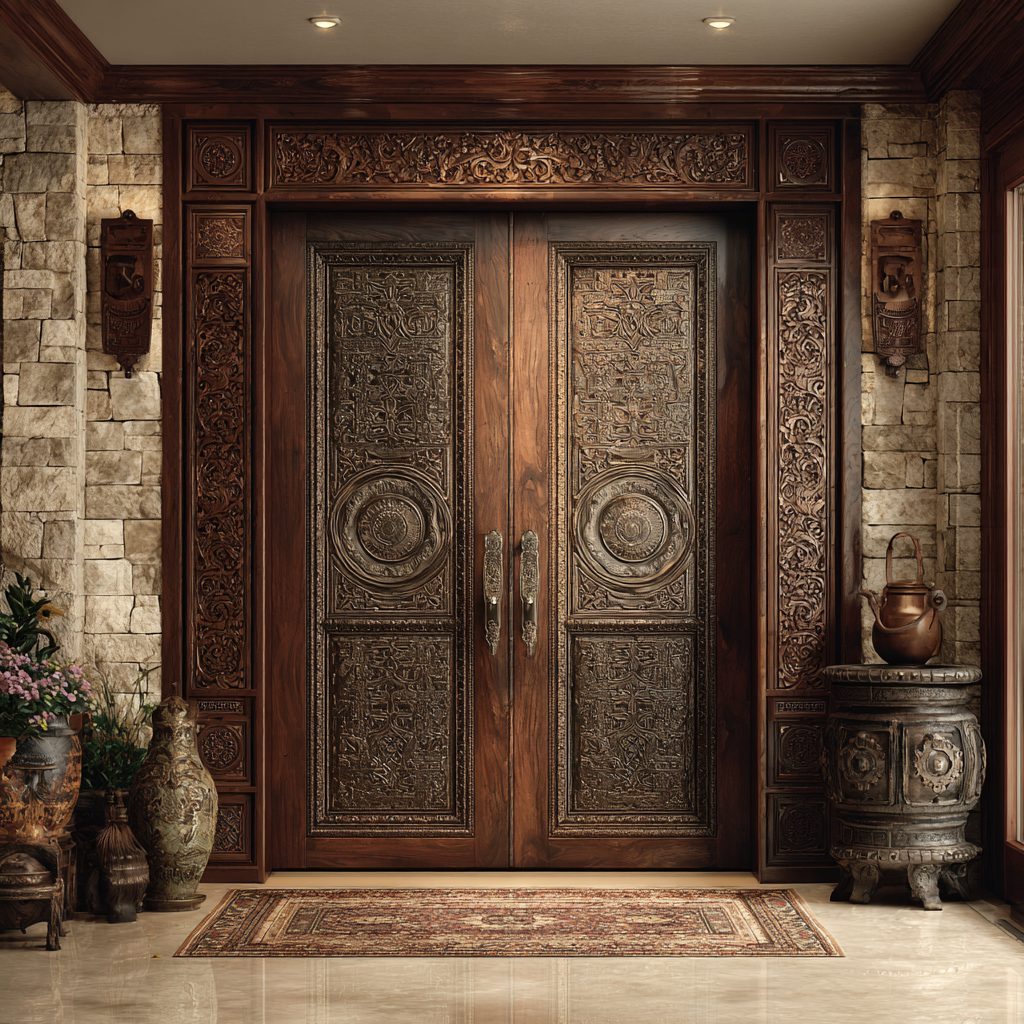The demand for high-quality doors has seen significant growth in recent years, with the global door market projected to reach over $100 billion by 2027, according to a report by Allied Market Research. Among the numerous options available, Turkish doors stand out for their intricate designs, durability, and functionality. As consumers increasingly seek alternatives that blend style with practicality, Turkish doors offer a compelling choice that meets these evolving needs. With a variety of styles ranging from traditional to contemporary, these doors seamlessly integrate into diverse architectural designs.

This blog will explore the best alternatives in the market while highlighting the unique attributes of Turkish doors, ensuring that homeowners can navigate the challenges of selection with confidence and make informed choices in this burgeoning market.
In the Turkish door industry, the importance of import and export certification cannot be overstated. These certifications play a crucial role in ensuring that products meet international quality and safety standards, which is essential for manufacturers aiming to compete in a global market. According to a report from the Turkish Statistical Institute, door exports have increased by over 25% in the past three years, highlighting the demand for certified products that comply with European and American regulations. Manufacturers with proper certifications not only enhance their marketability but also instill confidence in buyers regarding the durability and reliability of their offerings.
Moreover, the significance of these certifications extends beyond compliance; they are pivotal in maintaining the integrity of the supply chain. A survey conducted by the Building Materials Producers Association indicates that compliance issues can lead to significant financial losses, with non-compliant products resulting in recalls or diminished consumer trust. As Turkish door manufacturers enhance their export capabilities, obtaining the necessary certifications becomes essential for sustaining growth in this competitive sector. This strategic focus on quality standards and certification will empower manufacturers to capitalize on emerging markets while upholding the reputation of Turkish craftsmanship on a global scale.
When selecting Turkish doors, it's essential to consider the certifications that manufacturers and exporters should possess. Key certifications, such as ISO 9001 for quality management systems and CE marking for compliance with European standards, can significantly indicate a product's reliability and durability. These certifications ensure that the doors are produced under strict quality controls, meeting both safety and performance criteria that international markets demand.
**Tip:** Always verify the certification documents provided by the manufacturer. This not only assures the quality but also helps in choosing products that adhere to specific regional regulations.
In addition to certifications, look for sustainable sourcing practices. Certifications related to environmental standards, such as FSC (Forest Stewardship Council) for wood products, can provide reassurance that the materials used are sourced responsibly. This not only impacts the longevity of the doors but also contributes to environmental conservation efforts.
**Tip:** Engage with manufacturers who prioritize eco-friendly practices. This can enhance your brand's reputation while supporting sustainable development in the industry.

When it comes to acquiring Turkish doors, the certification process can present significant challenges for consumers and suppliers alike. According to a recent report by the International Standard Organization (ISO), nearly 40% of manufacturers encounter difficulties in obtaining necessary certifications for their products. This not only delays the market entry of high-quality Turkish doors but also adds complexity to the procurement process. Understanding local standards, compliance requirements, and international norms can be daunting, particularly for those new to the industry.
Moreover, the lack of clear guidelines and varying regional regulations further complicates the certification journey. The Turkish Chamber of Commerce reported that inconsistent certification practices contribute to discrepancies in product quality and safety, leading to consumer distrust. As the demand for durable and aesthetic door solutions increases, manufacturers must navigate these challenges strategically. Investing in comprehensive compliance training and consulting services can significantly streamline the process, ensuring that the Turkish door products meet both domestic and international standards while boosting their market reputation.
| Door Type | Material | Design Style | Price Range (USD) | Certification Process Challenges |
|---|---|---|---|---|
| Exterior Door | Wood | Traditional | 300 - 800 | Limited knowledge of standards |
| Interior Door | MDF | Modern | 100 - 300 | Documentation inconsistency |
| Security Door | Steel | Industrial | 500 - 1200 | Lengthy approval timelines |
| Patio Door | Vinyl | Contemporary | 400 - 1000 | Regulatory hassles |
 When considering the quality and safety of Turkish doors in the market, certification plays a pivotal role. Various industry standards and certifications such as ISO and CE mark ensure that doors manufactured in Turkey meet stringent quality and safety requirements. According to recent market research, over 65% of consumers prioritize certified products, which indicates a growing preference for quality assurance in home improvement purchases. These standards not only guarantee durability but also signify that the doors have undergone rigorous testing for safety, enhancing consumer confidence.
When considering the quality and safety of Turkish doors in the market, certification plays a pivotal role. Various industry standards and certifications such as ISO and CE mark ensure that doors manufactured in Turkey meet stringent quality and safety requirements. According to recent market research, over 65% of consumers prioritize certified products, which indicates a growing preference for quality assurance in home improvement purchases. These standards not only guarantee durability but also signify that the doors have undergone rigorous testing for safety, enhancing consumer confidence.
Moreover, the impact of certification transcends mere quality; it also shapes the competitive landscape. In a recent analysis, it was noted that companies with certified products reported a 30% increase in sales compared to those without certifications. This trend underscores the importance of certification in meeting consumer demands for both quality and safety. As homeowners navigate their choices, understanding the significance of certification can lead them to make informed decisions, ensuring they select the best Turkish doors that not only enhance their living spaces but also comply with high safety standards.
As the Turkish door industry continues to thrive, it is essential to examine the emerging trends and certification requirements shaping its future in the export market. Recent data indicates that Turkey's door exports have seen a steady annual growth rate of approximately 8%, driven by increasing demand in both residential and commercial sectors globally. Specialist reports highlight that the construction boom in various countries is propelling this growth, as builders increasingly seek high-quality, durable materials that Turkish manufacturers are known for.
Furthermore, the introduction of stringent certification requirements is revolutionizing export practices in Turkey. With a push for eco-friendly and sustainable manufacturing processes, the Turkish door industry is now focusing on obtaining internationally recognized certifications. Reports suggest that compliance with standards such as ISO 14001 for environmental management is becoming paramount, as buyers prioritize products from manufacturers that demonstrate responsibility towards sustainable practices. This shift not only enhances the reputation of Turkish doors but also aligns with global trends towards greener construction materials. As the industry adapts, the synergy between quality production and certification compliance will play a crucial role in expanding Turkey's footprint in the international market.
TradeManager
Skype
VKontakte
